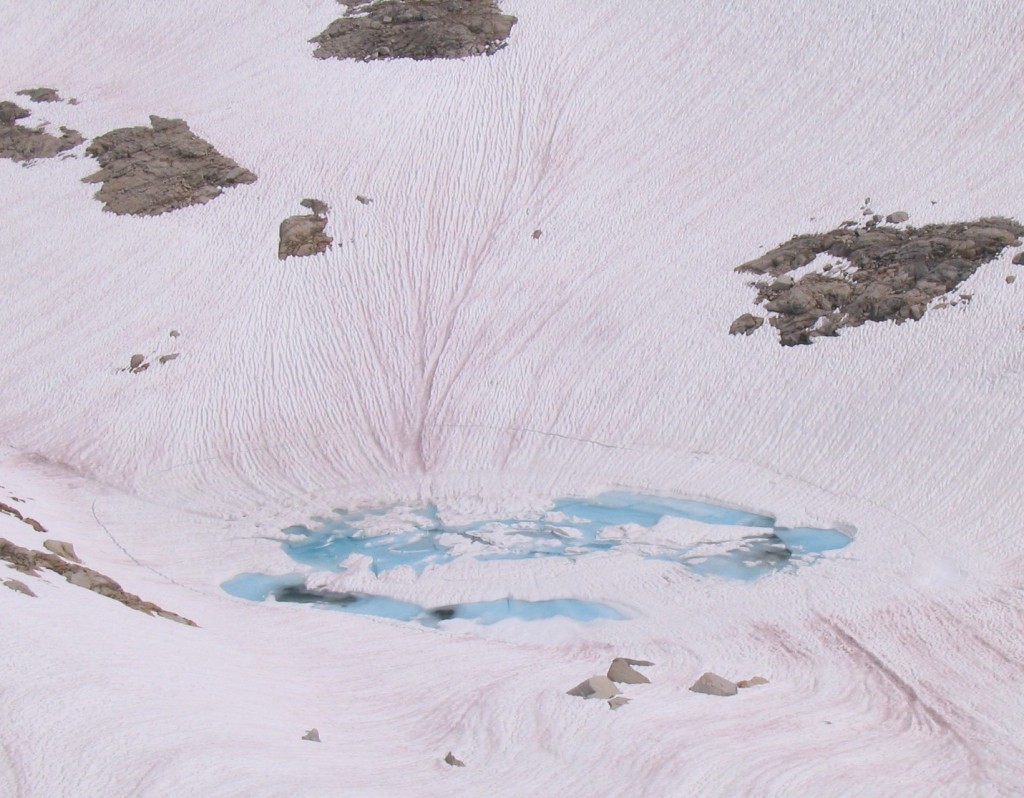Watermelon Snow

Yes, watermelon snow. It’s real, as seen by the reddish streaks in the snow pictured above. (More images, showing much redder snow, can be found via a Google Image search.) And yes, the snow smells like watermelon.
Watermelon snow can be found during the summer and sometimes spring, and basically anywhere on the planet where snow can linger into those months. It is caused by the presence of a particular type of algae, called chlamydomonas nivalis, which uniquely combines two traits. First, this particular type of algae is cryophilic — a term used for organisms which can reproduce in extremely cold environments (sometimes below freezing) — which allows them to survive in the otherwise harsh surroundings required for the sustained presence of snow. Second, chlamydomonas nivalis, in addition to their (green) chlorophyll, have a secondary pigment, which makes them appear red as the weather warms slightly.
What does watermelon snow taste like? Accounts vary, with some saying that it tastes like watermelon — but that is most likely the person’s olfactory sense playing a bit of a trick. In any event, Zappa’s advice applies here too. Eating watermelon snow is probably a bad idea, as one common theme among those who try it is a specific side-effect: a case of the runs.
Bonus fact: On February 2, 2007, a roughly 600 square mile section of Siberia was hit by colored snow — orange, not red. The snow smelled awful and was oily-feeling, with reportedly an extremely high iron content. The cause is not known for certain, but it’s believed that a sandstorm in Kazakhstan led to the odd — and, probably harmless — precipitation.
From the Archives: Type Cast: The bonus fact is about watermelons. Expensive watermelons.
Related: Do-it-yourself watermelon snow. (Minus the nasty side effect.)

Leave a comment